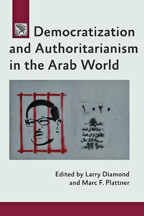
Reviews
A thoughtful collection of essays on the hazards, practical and conceptual, of one of the monumental changes in world affairs in our time.
Book Details
I. The Exit from Communism
Chapter 1. How Different Are Postcommunist Transitions
Chapter 2. Comparing East and South
Chapter 3. The Persistence of Postcommunist Elites
Chapter 4. Civil Society after
I. The Exit from Communism
Chapter 1. How Different Are Postcommunist Transitions
Chapter 2. Comparing East and South
Chapter 3. The Persistence of Postcommunist Elites
Chapter 4. Civil Society after Communism
Chapter 5. Understanding Postcommunist Transitions
Chapter 6. Estonia's Success Story
Chapter 7. The Postcommunist Wars
II. The East European Experience
Chapter 8. The Postcommunist Divide
Chapter 9. Europe Transformed
Chapter 10. Reassessing the Revolutions of 1989
Chapter 11. The Transformation of Central Europee
Chapter 12. Victory Defeated
Chapter 13. The International Context
Chapter 14. A Diverging Europe
Chapter 15. History and Memory: The Revolutions of 1989-91
III. The Post-Soviet Experience
Chapter 16. One Step Forward, Two Steps Back
Chapter 17. The Primacy of History and Culture
Chapter 18. The Impact of Nationalism
Chapter 19. From Democratization to "Guided Democracy"
Chapter 20. The Advantages of Radical Reform
Chapter 21. Disillusionment in the Caucasus and Central Asia
Chapter 22. Sovereignty and Uncertainty in Ukraine
Chapter 23. Russia's Hybrid Regime
Chapter 24. Putin's Path
Chapter 25. Going Backwards
Chapter 26. A Mixed Record, an Uncertain Future





